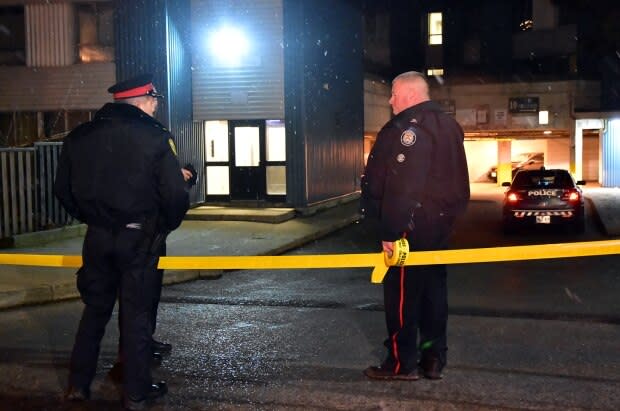Toronto police roll out 'wholesale change' in scheduling officers' shifts
The Toronto Police Service is changing the way it schedules the shifts of its officers as part of a year-long pilot project that began on Monday.
"It is the first comprehensive change of the deployment system of service members in over 35 years and will result in a new shift scheduling process that aligns police resources with the needs of the community," police said in a news release.
Acting Supt. Greg Watts, spokesperson for Toronto police's strategy management unit, said the new modernized schedule affects the average officer the most. He said it is a "wholesale change" in his or her shift schedule.
The pilot project will be monitored to ensure it is making a positive difference in terms of officer wellness and morale as well as public safety, he added.
The new shift schedule is "rooted" in data about demand for service, with start times tailored to what makes the most sense, having officers available when they are needed the most, he added.
In eight Toronto police divisions, officers will work 12-hour shifts, with five days on and four days off, followed by four days on and five days off. In three Toronto police divisions, officers will work 11-hour shifts, with seven days on and seven days off. Formerly, there was one schedule that was a compressed work week.
According to the worldwide standard model of policing, 70 per cent of an officer's should be spent on answering radio calls, Watts said.
"Thirty per cent of your time should be proactive policing, whether that is enforcing the highway traffic act, by getting out of your car, being intelligence-led in our visibility within our communities."

Toronto Police Chief Mark Saunders said in the release: "We have consulted experts, looked at the data and listened to our civilian and sworn members in designing a pilot that will result in our resources being deployed where and when they are needed most."
Watts agreed, saying: "You've heard Chief Saunders say many times that we don't necessarily have a people issue, we have a deployment issue."
New schedule follows pilot project at 41 Division last year
A pilot project in 41 Division in Scarborough in 2019 that used the new schedule for a year paved the way for the change, Watts said.
Mike McCormack, president of the Toronto Police Association, said the schedule that is being tested in the pilot project is based on evidence and data. He said the association collaborated with the service to create the schedule.
"When we look at shift work, there's no such thing as a perfect schedule," McCormack said. "But the results are amazing. It's better for the public, it's better for our members, and it's better for the police service."

At least one community group, however, is concerned about the pilot project.
'I know it won't fly with all community groups'
Joseph Smith, co-founder of Generation Chosen, a non-profit group that works primarily with at-risk youth in the Jane and Finch area, said the new schedule could have a negative impact on his community.
"I know it won't fly with all community groups," Smith said.
"The presence of police officers, just generally constantly surveilling the neighborhood, it doesn't bode well with the community residents. It makes them feel uncomfortable, it makes them feel like where they're living isn't safe, or isn't good, and it honestly makes them feel negative about their own neighbourhood," Smith said.
"It impacts them in such a dramatic way."
Smith said it is about clarity and transparency. Members of community need to know what police intend to do with their proactive policing time, he added.
The Toronto Police say the new schedule should give officers more time to engage with communities.



